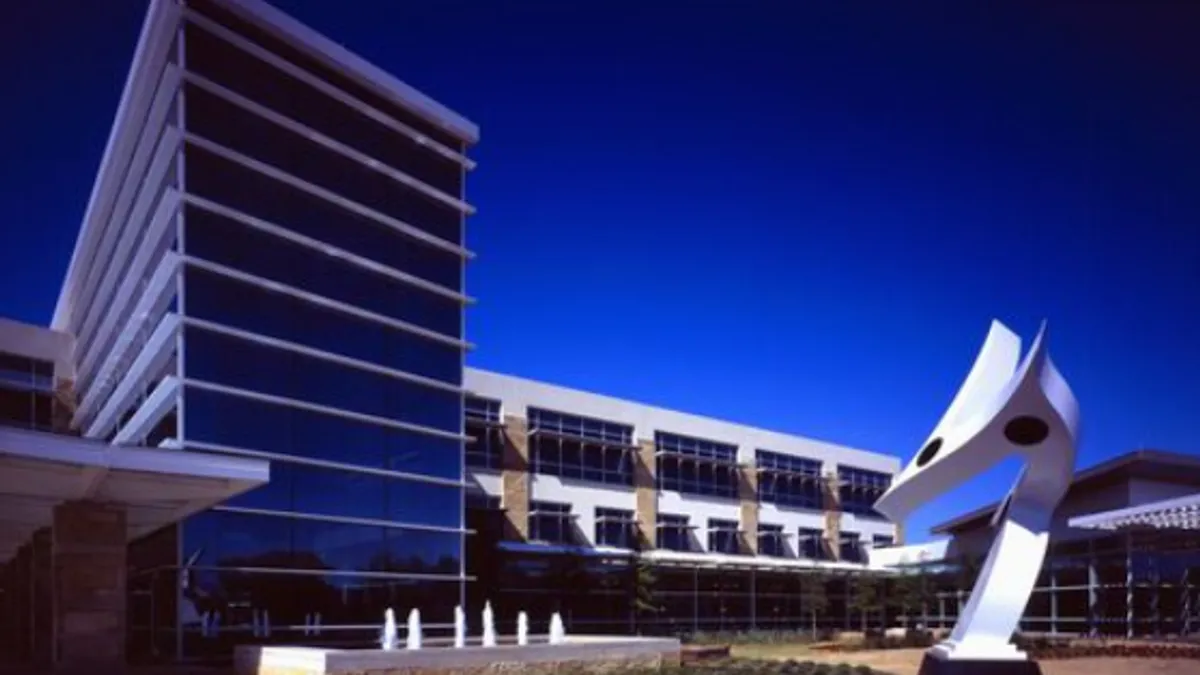One of the country’s largest and longest-running construction companies has announced it will sell off two of its divisions.
In what Fluor Corp. leaders estimate will generate $1 billion, the firm will divest its construction equipment rental company, AMECO, and its government business division as well as monetize surplus real estate and non-core investments.
The decision to sell the two businesses will allow the company to refocus on its core strengths, according to CEO Carlos Hernandez, who said the government division is not “strategically enabling to the rest of Fluor.”
As for AMECO, “it does not uniquely drive project success and it not seen by clients as a differentiated offering," Hernandez said.
“We believe this new structure creates a leaner organization,” he said yesterday during an investor call.
The 107-year-old firm will also close and realign certain regional offices for an overhead savings of about $100 million a year, Hernandez said. In addition, the company will reduce its quarterly dividend to $0.10 per share from $0.21 per share beginning with the next quarterly dividend declaration. This reduction will decrease the company's annual dividend spend from $120 million to $60 million, said Chief Financial Officer Michael Steuert.
The moves follow two consecutive quarterly losses that put the company more than $613 million in the red. The majority of that came from the second quarter, for which Fluor reported a $554.8 million loss on $4.1 billion of revenue.
With headquarters in Irving, Texas, Fluor ranks 164 on the Fortune 500 list with revenue of $19.2 billion in 2018 and has more than 53,000 employees worldwide. It is No. 2 on ENR's list of the top contractors in the country.
Looking ahead
The company currently does not have any buyers lined up for either of the two divisions, but Hernandez said he is hopeful both businesses will be sold in early 2020.
“Both are very marketable and attractive businesses and we hope to be able to execute on both on a very expeditious basis," he said.
The government group offers support services, laboratory management, nuclear and national security operations.
The sale is not prompted by the company's recent push to mitigate risk in certain projects, Hernandez said. "We're not selling the government group because it's high risk — it's a business that has value and is transactable but not essential for other core business at Fluor," he said.
The company’s remaining businesses will be focused on engineering, construction and maintenance in four core markets: Energy & Chemicals, Mining, Metals & Industrial; Infrastructure; and Diversified Services.
"As we assessed the key markets that we serve it became apparent that we currently have or at least can quickly build to a prominent position in four major segments," said Alan Boeckmann, the company's executive chairman. "In each of these areas we are addressing markets that offer growth opportunities."
Fluor also announced yesterday that the company's namesake director, Peter Fluor, will retire in April 2020. Fluor, who has been a director since 1984, said "the timing was right" for him to retire.
In addition, the company's board of directors recently elected two new members with significant industry experience: Thomas Leppert, former mayor of Dallas and chairman/CEO of Turner Corp. and David Constable, former Sasol CEO and a director of Rio Tinto and ABB.
Project selection
In May, the company initiated several major changes to the amount of risk it takes on through its selection of projects. Going forward, executives said the company will only pursue fixed-price energy work that meets strict criteria, narrow focus on infrastructure work to five key states, and will no longer pursue most lump-sum projects in the government sector — echoing an industry trend. For instance, in August, Granite Construction announced it will move away from public private partnerships in its heavy civil division.
In all cases, risk projects will be subject to an initial bid/no-bid approval followed by final approval by the Fluor executive team. This increased focus on selectivity will change the prospect pipeline profile and drive the company to a backlog and execution platform that can deliver consistent results, Hernandez said.
The executives on yesterday's call said they have already seen a change in the types of projects the firm is considering.
“If it means we’ll get less work but consistently profitable work we’re OK with that," Hernandez said.






















